Over the course of a decade, Rosie Starks served as a foster parent to four children. For the past three years, she’s used that experience to guide another needy group in the child welfare system: foster parents.
Starks is a foster parent mentor for the nonprofit Metropolitan Family Services, in Chicago. “I’m the person who walks along beside them and tries to be a support system,” says Starks, who works with 18 to 24 clients at a time, for six to 12 months each.
Starks is part of a growing but still scattered movement in which agencies ask former or veteran foster parents to work with caseworkers to help bring new families up to speed on foster parenting issues – everything from state regulations to the vagaries of dealing with troubled youth.
The National Foster Parents Association is standardizing a foster parent mentorship program developed in Nebraska so that it can be used anywhere. The Rhode Island Foster Parents Association employs six mentors who serve about 110 families. Kentucky runs a state-funded program based at the University of Kentucky’s School of Social Work Resource and Training Center.
“We think it’s very important that new foster parents have mentors,” says Karen Jorgenson, executive director of the National Foster Parents Association.
If it’s such a great idea, why isn’t it more widespread? Jorgenson sees time as the main barrier, especially if an agency doesn’t pay the mentors. Some agencies, such as Metropolitan Family Services, pay salaries to the mentors, while others offer monthly stipends or just a “thank you.”
“It’s difficult to ask foster parents to step forward and do one more thing without compensation,” Jorgenson says.
That lack of compensation, however, is part of what makes John Johnson, director of Foster Family Service, wonder why other agencies don’t run such programs. “It’s a zero net cost,” says Johnson, whose program covers 17 counties from its base in Placerville, Calif.
“Dare I say we often become a little elitist” in the foster care industry, he says, thinking that “those with master’s degrees and a business license to do foster care know best – when, in fact, there’s a tremendous knowledge base among foster families.”
Some agencies that have tried foster parent mentoring have found it not worth the trouble. The Parent Educational Advocacy Training Center (PEATC) in Springfield, Va., once received U.S. Department of Health and Human Services money to offer foster parent mentoring, but that funding dried up more than five years ago, says Executive Director Cherie Takemoto.
“Our evaluation of that program did not give us the kinds of results that we thought we would get,” she says. “Foster parents weren’t really calling” in search of mentors, “even though we did outreach to advertise. We never figured out why that was the case.”
One reason might have been that foster parents got their answers in other ways. The local county and other entities held periodic training programs for foster parents, Takemoto says.
Millicent Williams, director of foster care for the Child Welfare League of America, suspects that informal foster parent mentoring may be more common than structured programs. “The term has been around a long time,” she says. “It doesn’t happen in a formal way in most agencies. People just come together and do it.”
She says that in a handful of places, such as New York City, agencies achieve much the same effect with geographic clusters of foster parents. “There are some foster parent clusters that agencies have, of foster parents living in the same neighborhood,” she says. “They have an active support group for each other.”
Tamikia Dumas, program coordinator for the Kentucky program, believes the concept for formal mentoring is catching on, based on the number of phone calls she receives from agencies seeking to set up mentoring.
Following are several examples of how different agencies provide and fund such programs.
Staffers as Mentors
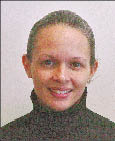 |
|
Pullie: Mentors “break down barriers.”
|
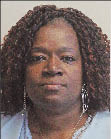 |
|
Starks: Foster parents don’t have to feel abandoned.
|
Metropolitan Family Services
Chicago
(773) 371-3600
Approach: This nonprofit assigns a mentor to every foster family, creating valuable peer relationships, says Carrie Pullie, manager of the program.
“We have master’s level therapists” on staff, Pullie says, “but a lot of times the foster parents are saying, ‘You don’t have any children,’ or ‘You don’t know what it’s like.’
“Having somebody with those experiences has been positive. They align with the foster parents and see them as equals. They can break down some barriers that other people can’t because of that shared relationship, of having a foster child and knowing the system.”
Mentors visit at least once a month, sometimes once a week, Pullie says, bringing both empathy and savvy in dealing with the system. “It’s a whole team effort,” she says. “It’s getting them [foster parents] to understand that these children have some emotional and behavioral problems, but how to help them in spite of that.”
Mentor Rosie Starks, who handles 18 to 24 clients at a time, says she attends an initial appointment with the caseworker, then visits the foster parents repeatedly, as long as the case is open. “I bring the wisdom of having raised three children … to adulthood,” she says, along with having cared for four foster children for 10 years. “I can relate to some of the issues. … Some parents don’t really need you to give them direction. They just need someone to speak with.”
“We don’t try to tell people what is and isn’t” the way to handle situations, Starks adds. “We try to buffer each other.” If a new foster parent describes a trying situation, she’ll say, “Well, you know what, I did this when that happens.”
Starks notes that many foster parents are “of mature age” and need to renew their skills. “We try to give them tools and techniques,” she says. “We have guest speakers. We get a particular movie from the library that might emphasize certain child behaviors and that might enable the foster parent to work out issues without stressing themselves, how not to take the behavior too seriously, or key in on the negativity of it.”
Parents can maintain a connection with Starks after that initial yearlong period, through group sessions, which are held two evenings per month, with babysitting services and snacks provided for the children. “The parent doesn’t have to feel, ‘I’ve been abandoned,’?” she says.
History and Organization: Metropolitan Family Services began its program more than three years ago and assigns every foster parent a mentor, says Pullie, who estimates “hundreds” of people have used the mentors.
Staff: Metropolitan relies on two staff mentors to handle its caseload, along with five social workers and counselors.
Funding: The cost of the program amounts to the two salaried positions, which receive funding from the state Department of Children and Family Services.
Indicators of Success: Metropolitan Family Services asks foster parents to rate its program once every six months, Pullie says. In a survey conducted last year, for instance, 87 percent said the program had a good or excellent impact “On children’s relationships in the home,” and 82 percent said it had a good or excellent effect on “your ability to manage children’s behavior.”
Mentoring by Phone
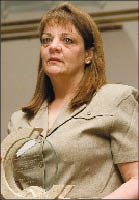 |
|
Vargas prepares to present an award to foster parent mentor Pat Lengyel and her husband, Paul.
|
Rhode Island Foster Parent Association
Providence, R.I.
(401) 438-3900
Approach: The Rhode Island Foster Parents Association (RIFPA) provides phone mentoring and a Help Line for the entire state. Mentors call their families at least twice a month, and they all attend quarterly get-togethers that include dinner and social activities, says Leslie Vargas, mentor program coordinator.
Mentors receive $20 monthly stipends per family.
RIPFA does not require face-to-face visits. “Going out to their homes we do not do, unless someone has requested it,” Vargas says. “The families themselves can call the mentor any time, day or night. … They [the mentors] have enough in their lives.”
Foster parents enroll in a 10-week pre-service training with the state Department of Children and Youth Services (DCYS) and are given information about the mentoring program when they graduate, she says. They are not required to participate. Those who decide to enroll typically do so for a year.
Rhode Island has quite a bit of “kinship care,” Vargas says, and many of the relatives contact the program for help. She says a lot of referrals also come “from social workers who have just placed children in a kinship home. The uncle or aunt doesn’t know anything about foster care. If they want to call and fuss and scream and yell, that’s what we’re there for.”
The phone mentoring appeals to such people because “they’re afraid social workers are going to come and take their kids,” Vargas says. “One of the things that is very difficult is having the contact with the families and gaining their trust, especially the kinship homes. It takes awhile to get them to warm up, because they’re so afraid.”
The calls are confidential, unless the mentor learns of abuse or neglect.
Finding the right match can be a challenge. One African-American mentor called a family for the first time and received a broadside of racist comments, Vargas says. Gay couples have called wanting a gay mentor, and RIPFA has found one, Vargas says.
In other cases, personalities just don’t click, and people are reassigned to other mentors. “We’ve had our little obstacles when it comes to that stuff,” she says. “But overall, it’s been pretty successful.”
History and Organization: The program dates to 1992, and Vargas believes Rhode Island was the first to launch such a program statewide. “I’ve had a lot of different states calling me, inquiring about it,” she says. “Because the state’s so small, it’s a little bit easier for us to do that.”
Staff: Six mentors serve about 110 families, taking varying caseloads, depending on their availability. A stay-at-home mom with one or two children might have enough time to handle phone calls to 20 new foster parents, while someone with a job outside the home might only handle 10.
Funding: RIFPA receives about $59,000 in annual funding through the state DCYS, which covers the mentors’ stipends, among other things.
Indicators of Success: The foster parents association is beginning to compare the retention rates and longevity of those who receive mentoring with the rates among those who don’t, Vargas says. It knows that the percentage of those who receive mentoring who decide to stay is “pretty high,” she says.
Factoring out those in kinship care, who tend to leave the program because they adopt, RIFPA calculates that 85 percent of the 300 other families who participated in the program during the past two years have continued to be foster parents, Vargas says.
Mentors by Mandate
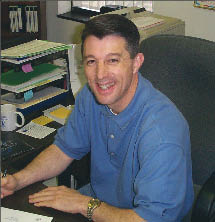 |
|
Damron: Without support, foster parents sometimes think, “This is impossible.”
|
University of Kentucky, College of Social Work
Training and Resource Center
Lexington, Ky.
(866) 257-9837
Approach: The center’s state-funded program provides mentors for all foster parents in Kentucky. The matches usually last six months, and mentors provide monthly reports on topics they’ve discussed with the families, says Tamikia Dumas, program coordinator. Mentors receive a stipend of $50 per month per family; they usually handle two at a time.
All Kentucky foster parents are required to have mentors at the outset, with exceptions made for those who have close relatives who are already foster parents and can provide such support more informally. Mentors must contact families by phone once a week and visit the family at least once in the first month, “to help with the relationship-building piece, establish trust, gain a comfort level,” Dumas says.
“We do not put a limit on how long those telephone conversations have to be,” she says. “If they have their first placement, during the ‘honeymoon stage,’ the telephone conversations will probably be very short. In a typical placement, there will be ups and downs, and curves along the way. … We do encourage them to talk about any issues they may have. It can be very personal at times.”
New mentors go through training during which they “focus on some components – confidentiality, a partnership of trust – and encourage them to develop that relationship,” Dumas says.
Counties recommend mentors to the state program’s recruiting and certification team, Dumas says. Initially, the state wanted mentors to have been foster parents for at least three years, but had trouble finding enough. The requirement was lowered to one year. “We were running really low,” Dumas says. “We said maybe if we lowered that time frame, we could capture more mentors. A lot of people will go through training to serve as resource parents with their sole purpose being to adopt.”
Mentors must submit monthly reports showing how much contact they’ve had with their families and what they discussed. Some make personal visits during sudden crises. “Some have gone in the middle of the night to deal with various issues,” Dumas says.
History and Organization: The program started in 1999. At first, foster parents were not required to participate, but in 2003, the state “moved to 100 percent participation,” Dumas says.
Staff: The staff consists of one part-time and two full-time employees, Dumas says. Each mentor handles up to three families at a time; most have two, says Program Director Jeff Damron. On average, the program enrolls 415 new foster families per year, with about 200 active matches handled by about 150 mentors at any given time.
Funding: With funding through the state Cabinet for Health and Family Services, the program’s budget of $150,000 covers stipends, postage, promotions, printing, and conferences and workshops, says Damron.
Indicators of Success: An evaluation by the College of Social Work in 2003-04 showed that 78.7 percent of foster parents said the experience with a mentor made them more likely to stay with the program, Damron says.
Because the evaluation was conducted after the mentoring program became required, it could not compare results with those who did not have mentors. But anecdotal feedback suggests that “individuals who participated with the program tended to stay with the agency longer,” Dumas says. “Those who encountered difficult situations and were matched with a mentor continued to foster after that.”
“The kinds of decisions they have to make, the pressures that are upon them, it really is necessary that they have this kind of attention and ready access to information,” Damron says. “Without that, folks tend to get a little more frustrated and tend to believe, ‘This is impossible. I need to do something different.’ ”
All Volunteer
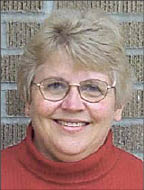 |
|
Bomgaars: Mentored families are “more comfortable in their role as foster parents.”
|
D.A. Blodgett for Children
Grand Rapids, Mich.
(616) 451-2021
Approach: D.A. Blodgett has formalized a mentoring program that began informally about 20 years ago. It relies on volunteers and does not require foster parents to have mentors. It used to receive government funding for the effort, but seems happy without it.
The pairings of mentors and families last at least three months, says Mary Lou Bomgaars, foster home licensing supervisor. She sees the relationship as providing an extra dimension that’s especially valuable, given the usual high turnover among staff in social service agencies.
“It’s so much more effective when you’ve been there as a foster parent and you know what it’s like,” she says. “The mentor will say, ‘This type of situation is going to come up.’ That family is so much better prepared for issues that come up,” she says. “The families that are mentored are more comfortable in their role as foster parents.”
D.A. Blodgett is developing formal “how-to” materials for new mentors and families, but what they need most is the right mindset, Bomgaars says.
“There has to be that receptive attitude from the new foster family,” she says. “When we’ve tried to match people during the licensing process, or before they have their first placement, they’re not as quick to want to invest in that relationship.”
Mentoring relationships often continue beyond the formal three months, Bomgaars says, and sometimes the cycle begins anew. “They’re going to continue to be supportive of each other and help each other with child care and other issues that come up as foster parents,” she says. “We have some families who have been mentored who are mentoring others. It just continues.”
History and Organization: More than a century old, D.A. Blodgett started what it called a “buddy system” 20 years ago; it evolved into a more formal program in the late 1990s.
Staff: Blodgett depends on 10 to 15 volunteer mentors to serve about 50 families, Bomgaars says.
Funding: Blodgett says she once received state funding through the now-defunct Michigan Foster Parent Association to pay foster parent mentors, but that well has been dry for about 10 years. The agency found the state arrangement brought headaches, she says.
“It just takes a lot of time to facilitate all that,” she says. “When the mentors were paid, a lot of them didn’t register their hours. They forgot to keep track of their miles. It wasn’t a priority to get paid for it. And it was a paperwork nightmare.”
Indicators of Success: Although D.A. Blodgett has not formally assessed its program, Bomgaars believes families with mentors remain in the system longer, and those without mentors tend to face more investigations or are quicker to close their license after one placement.
































